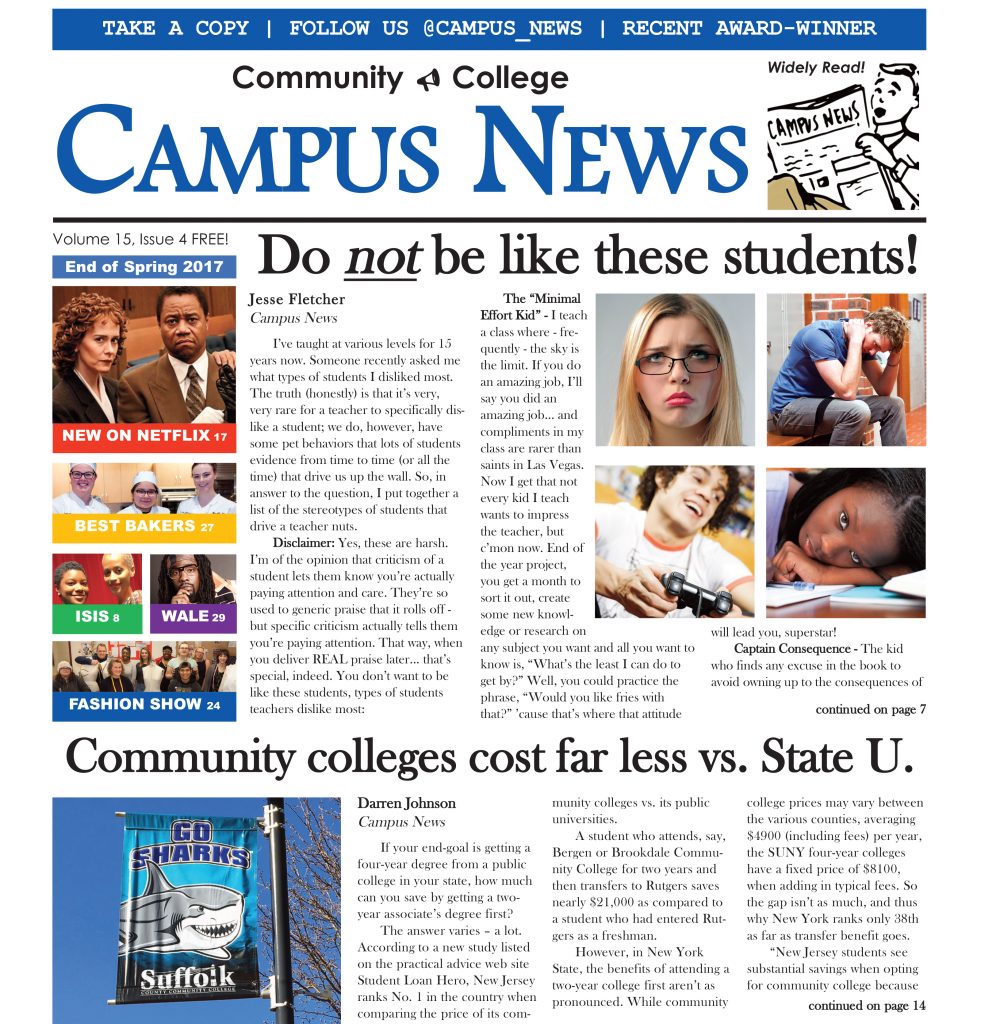By Darren Johnson
Campus News
There have been some articles of late about The Great Resignation affecting full-time faculty members, and a very popular Facebook group titled The Professor Is OUT offers daily testimonials of professors – even tenured ones – leaving the field.
For some of them, it’s about salary but for most it’s a feeling that their work isn’t being respected by their departments, and that what they are doing isn’t all that important.
I’d like to tell them to grow a thicker skin – being a full-time professor is a pretty cush gig, and, in reality, your department doesn’t own you. Do whatever you want, within propriety; no one’s going to fire you. At least not right away. It may take years to get rid of you; and, by then, there probably will be new deans and department chairs who are more amenable. Enjoy your nice office, your generous time off. Who cares what your “colleagues” think? You’re relatively safe compared to most workers in this country, who can be let go on a whim. You will have a soft landing, if the college does decide to downsize you.
But there are part-time professors, commonly known as adjuncts, who at most colleges are the majority of faculty, and they have no such security; they rarely have an office or real benefits. They work out of a car for a fraction of what the full-timers earn.

I belong to some online adjunct groups; they are getting just as disillusioned as the full-timers. Right now for colleges, it’s not an issue if the adjuncts are thinking of resigning; enrollments are down at most colleges who employ a lot of adjuncts, so the adjuncts aren’t as needed. Not right now, anyway.
But enrollments will rebound – when they do, will these colleges be able to find enough cheap adjuncts to make it work?
I propose that colleges that rely on adjuncts start upping their offers to lock in the best adjuncts: Find them office space; give them enough pay so that if they teach two courses a semester, it’s sizeable enough where they don’t have to teach elsewhere (and guarantee those courses will run, even if they don’t get much enrollment); offer free or low-cost benefits including healthcare and tuition remission for family members. The pay should be at least $10,000 per course, pro-rated to what typical full-timers make.
The adjuncts can concede that they won’t teach elsewhere, and that they will spend 20 hours on campus per week during the semesters.
The new normal may be that practically all professors of the future are part-timers – they just teach two courses a semester so that they have enough time and energy to also practice in the field in which they teach. Being in the field will make them better teachers – they will have real-world examples to convey to their students, and up-to-date career advice.
As it is now, some adjuncts, earning as little as $2000 per course, teach numerous sections on multiple campuses – they don’t have time to stay current. Students aren’t getting a fresh and up-to-date instructor. This is no slight to adjuncts – they are just trying to make a living. Who can blame them for hustling, in this economy, especially?
Colleges that want to keep providing a high quality education, even as full-time instructors disappear, should rethink the part-time/adjunct model.
They need to lock in part-timers – and stop calling them adjuncts – with a guarantee of two courses a semester, office space and generous benefits now. Give them some job security. Or these colleges will be scrambling in the future to find capable help.
The contracts can require the part-timers, in turn, not work for other colleges, and put in 20 hours a week, so that students see them and can interact in the corridors, enhancing the learning and college experience.
Many people who are quite accomplished in their fields don’t want to teach full-time, but they don’t want to be a mere adjunct, either.
But new, glamorized part-time faculty positions would be attractive for them.
One would think this would be a more financially viable option for colleges anyway.
 Darren Johnson regularly writes about adjunct issues. He has either been a full-time college administrator, full-time visiting instructor or part-time instructor for most of his life.
Darren Johnson regularly writes about adjunct issues. He has either been a full-time college administrator, full-time visiting instructor or part-time instructor for most of his life.








Facebook Comments